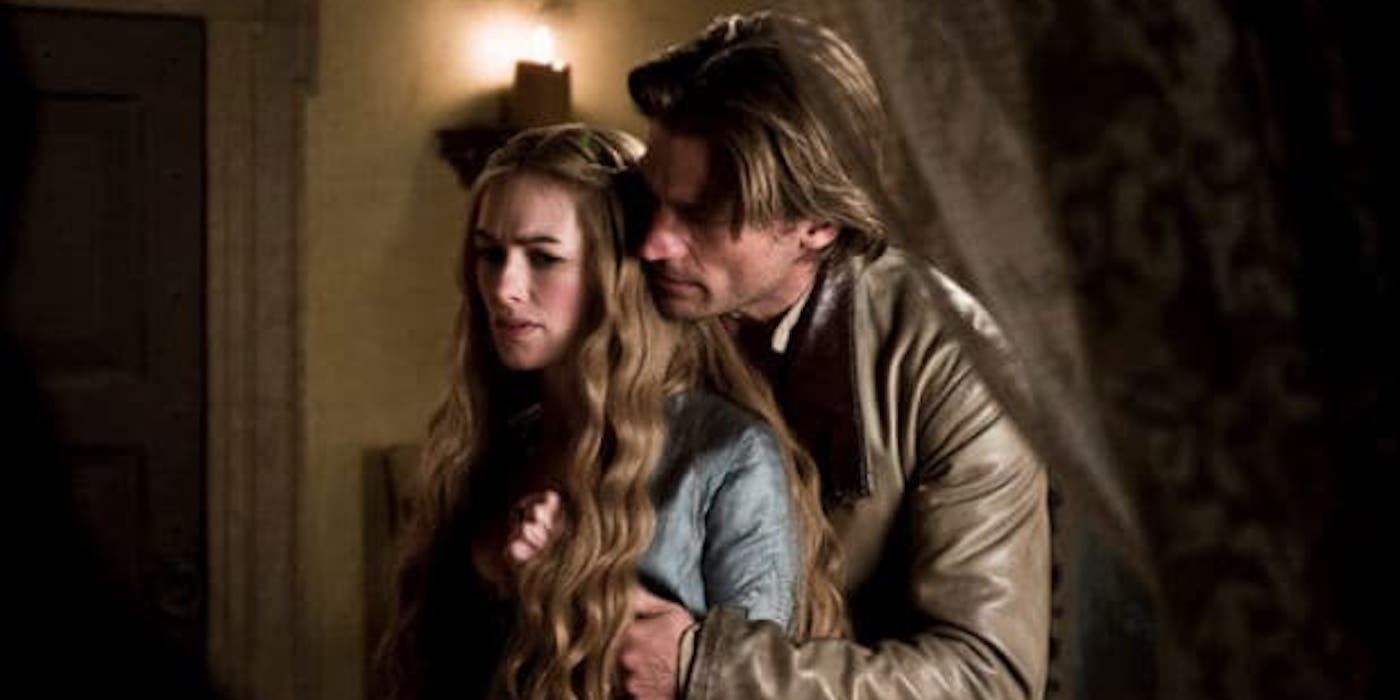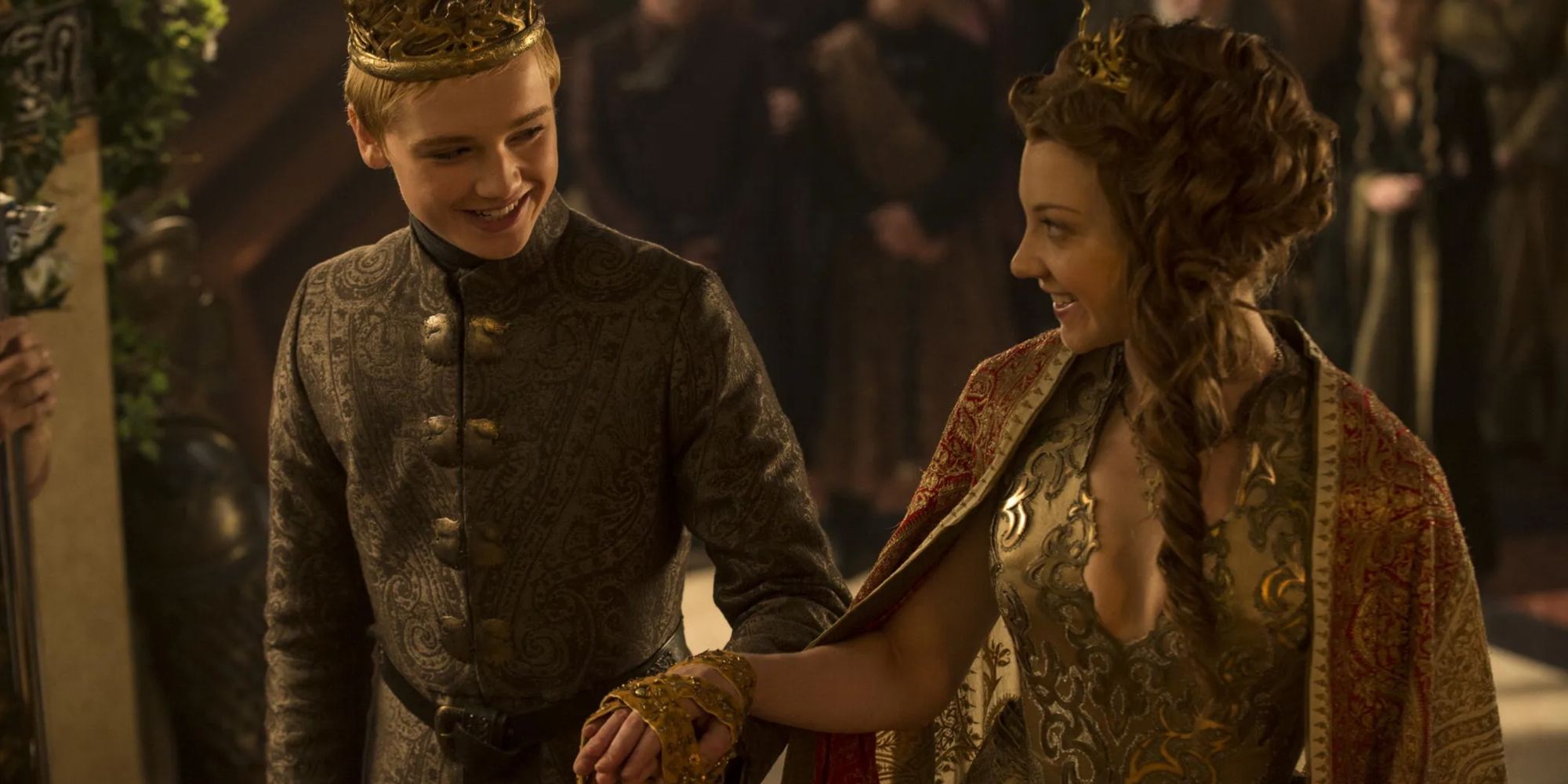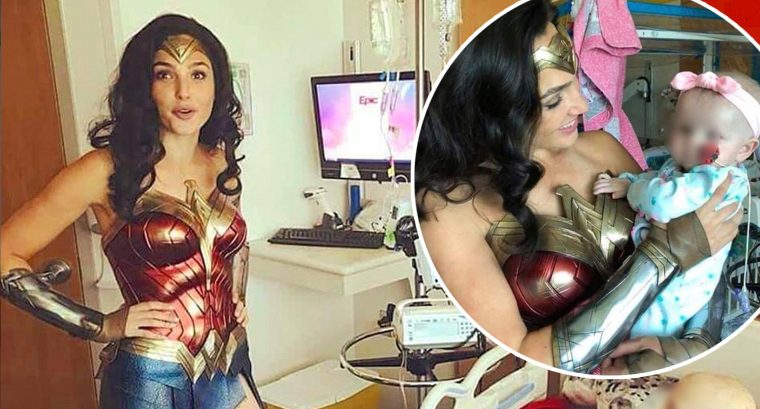King Tommen Baratheon memorably jumped to his death in Game of Thrones season 6, but a number of different factors played a part in his suicide.
King Tommen Baratheon took his own life in the Game of Thrones season 6 finale, but Tommen’s suicide was sparked by circumstances beyond the the sudden death of his wife. Callum Wharry played the youngest son of Cersei Lannister until the role of Tommen was recast with Dean-Charles Chapman for season 4. Tommen emerged as the heir to the Iron Throne shortly afterward, but the pressures of his family and the surrounding tension among Westerosi powers eventually got the best of the young king. After first appearing in a minor role, Tommen became more active in Game of Thrones season 4. Like his siblings, Tommen was secretly the product of a sexual relationship between Cersei and her twin brother, Jaime Lannister. He was present for the wedding ceremony between Joffrey and Margaery Tyrell, and the subsequent funeral following his older brother’s death. Although inexperienced and naive, Tommen was crowned the next Lord of the Seven Kingdoms.
After Joffrey’s death, Margaery shifted her focus to Tommen as a way to realign the powerful families. They soon married, but conflict quickly arose when Cersei grew jealous of Margaery’s influence on her son and gave the High Sparrow more power. After the Faith Militant arrested Margaery and her brother Loras, Cersei’s plan to separate her son from the Tyrells backfired, leading to her own capture and walk of atonement. Tommen became more and more brainwashed by the High Sparrow and his religious sect. Despite abolishing trial by combat, Cersei was still set to be tried for her crimes. As the trials were set to begin, Cersei orchestrated a wildfire explosion at the Great Sept, killing thousands including Margaery. After witnessing the disastrous event, Tommen took off his crown and killed himself by walking out of his bedroom window. The death of Margaery was a factor in Tommen’s suicide, but the actions of his mother were a bigger piece of the puzzle.
Tommen Baratheon Couldn’t Deal With His Family Anymore
In many ways, the moment Tommen commits suicide felt inevitable. Almost everyone who encountered Tommen in Game of Thrones manipulated him in some way. Margaery seduced him when he was in a vulnerable state, while his mother also tried to keep control of him. Even the High Sparrow knew he was a gullible young man who could be used to push the Faith of the Seven. Of course, the death of Margaery resulted in an immense amount of grief, but this played second-fiddle to the trauma of growing up a Lannister.
Tommen had recently lost his only siblings, and those deaths occurred shortly after the death of his supposed father, Robert Baratheon. The fact that his mother knowingly killed thousands of innocent people in King’s Landing, including the woman he loved, was unfathomable for Tommen. With the realization that his newfound faith was a lie and that he had nobody left to turn to, the young king felt like he had no other option but to end his own life. It definitely made for one of the most abrupt deaths throughout Game of Thrones.
Tommen’s Death Fulfilled Cersei’s Tragic Prophecy In The Show
An ominous prophecy shown in Game of Thrones season 5 was fulfilled by Tommen’s death. In the premiere episode of season 5, “The Wars to Come,” a flashback is shown during which Cersei seeks out the help of a witch named Maggy the Frog. After demanding that the woman predict her future, the witch winds her a harrowing tale that ends up shaping Cersei’s backstory and prophecy. She states, “You will be queen, for a time. Until there comes another, younger and more beautiful, to cast you down and take all that you hold dear.” Maggy then went on to say, “The king will have twenty [children], you will have three. Gold will be their crowns, and gold their shrouds.”
In life, the only thing that Cersei Lannister really cares about is her children, meaning that they will be what is taken away. Joffrey is killed by poison, Myrcella is also killed by poison out of revenge for Oberyn Martell, and then Tommen kills himself. The deaths of all three of her and Jaime’s children ultimately fulfills the prophecy, and their shrouds are, in fact, golden. In the Game of Thrones books, Maggy the Frog also predicts that Jaime could be the one to kill Cersei in the future, but this never comes to pass. Ultimately, the moment Tommen commits suicide fulfilled this prophecy, and in extremely upsetting circumstances befitting the tone of Game of Thrones.
RELATED:Every House Of The Dragon Character Related To Game Of Thrones Characters
The Cinematography Made Tommen’s Death Unforgettable
Game of Thrones season 6, episode 10, “The Winds of Winter” was directed by Miguel Sapochnik, who also directed three other Game of Thrones episodes, and handles the scene when Tommen commits suicide in an unforgettable way. As Tommen sits in his quarters, he views from afar Cersei’s destruction of the Red Keep and is informed of Margaery’s death. As an attendant tells him that he’s “very sorry, your grace,” the shot sees Tommen facing the window, with his back turned to the camera. The shot doesn’t change as the attendant leaves, and Tommen briefly walks offscreen to remove his crown. He then walks back to the window, which the camera had been focusing on the whole time. Without a word, the young king steps forward, and Tommen commits suicide by calmly walking out the window.
It’s a gracefully executed scene, one that Game of Thrones fans won’t soon forget. The destruction of the Red Keep had happened mere moments before, which in itself was an incredibly bombastic scene that featured a major character’s death. The scene where Tommen commits suicide is a quiet installment meant to juxtapose the previous one and complement a quiet death with a dramatic one. Despite its subdued nature, showing when Tommen commits suicide still shocked Game of Thrones audiences to the core. As the last of Cersei’s children die, and she is pronounced Queen of the Seven Kingdoms, but this isn’t why Tommen’s suicide still lingers as a memory — it’s the masterful way this moment was delivered to audiences by Sapochniik.










